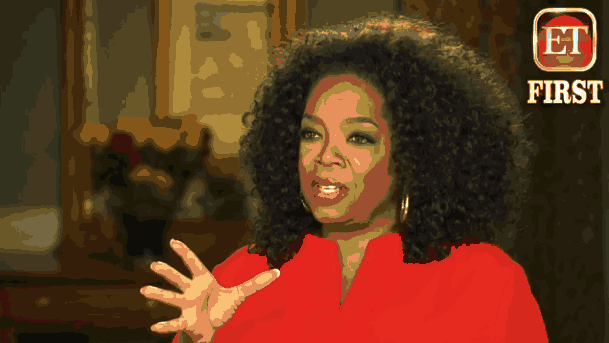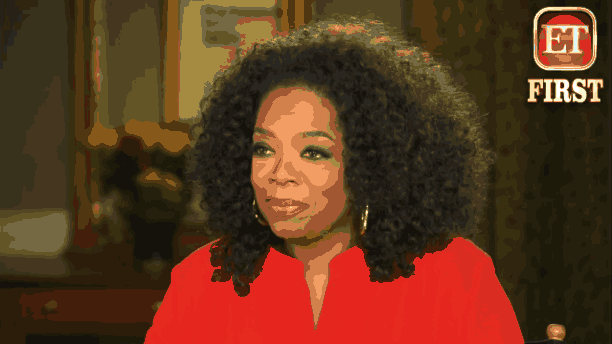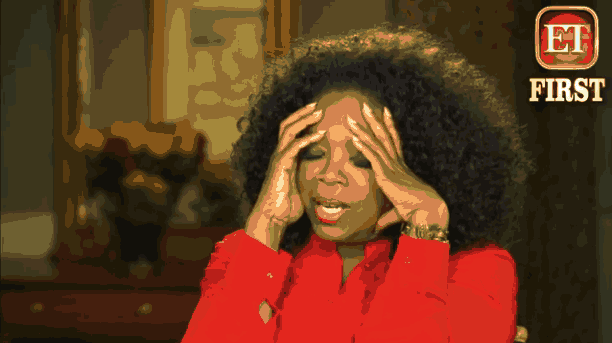Oprah Winfrey, Television Culture, and the Postidentity Dance
Ralina L. Joseph / University of Washington

Midway into the second decade of the twenty-first century, signs of racial and gender
progress abound – at least when it comes to celebrity culture. However, ascending to such heights does not insulate even Oprah Winfrey from having to publicly negotiate race and gender-based discrimination. What can her negotiations tell minoritized audiences about how we, too, can speak back?
In August of 2013 the infotainment world briefly centered its short-attention span on a déjà vu story about media mogul Oprah Winfrey’s not being allowed to see a certain designer handbag at a high-end retailer in Europe, a twin incident to a 2005 one. This story, titled “Oprah on Being a Recent Victim of Racism” by the entertainment news show that broke the story, Entertainment Tonight (ET), came to me through social media headlines providing links to a segmented and highlighted story on ET’s website.1 The website situates clips of the six-minute long story above the splashy headline and a teaser summary of the sit-down interview TV personality Nancy O’Dell conducted with Winfrey as part of a press junket for her 2013 film The Butler. As the film examines racial issues throughout the second half of the twentieth century, O’Dell and Winfrey’s interview centers on questions of race and discrimination. Winfrey, with her shoulder-length hair loose, curly, and full, wears bold gold hoops and a fiery red, notched collar tunic that matches her lipstick and sets off her smoky eye makeup. Foreboding music plays softly in the background, alerting the viewer to the fact that this is a serious conversation.
After breezing through what O’Dell names as the big race issue of the summer, Food
Network television star Paula Deen’s use of “the n-word” (but not about the summer’s bigger “race story” of George Zimmerman’s trial and subsequent acquittal for the murder of Trayvon Martin), O’Dell questions Winfrey not with an expansive inquiry into her own experiences of discrimination, but instead with what the media has posited as the ultimate litmus test to prove the continued existence of anti-Black racism, personal attribution of “the n word.” To O’Dell’s query as to if she had been called “the n word,” Winfrey responds, “I would have to say that racism for me doesn’t show itself that way.” Winfrey goes on to say that outside of “Twitter thugs” on anonymous social media sites, “nobody in their right mind is going to do that to my face or in that way.” Her celebrity is not the only thing that shields her from old-school racism in the form of racist epithets; 21st century mores dictate that the word itself is so verboten that it cannot even be iterated in polite multiracial company more than in the euphemism “the n word.” Winfrey caps this particular discussion by saying that she is immune to “true racism,” which she describes as “being able to have power over somebody else.” Winfrey implies that her celebrity and sheer economic power function as her shields.
It is here that Winfrey takes charge of the interview. Changing tact, Winfrey provides an addendum to her denial of facing “true racism” by seguing into a discussion of the ways in which race- and gender-based discrimination affects her life. She tells O’Dell,
It shows up for me this way. It shows up for me that sometimes I’m in a boardroom or I’m in situations where I’m the only woman, I’m the only African American person within a hundred mile radius, and I can see in the energy of the people there. They’re, they don’t sense that I should be holding one of those seats. I can sense that.
[O’Dell (incredulously): you?]
Yeah! Of course I can sense it. But I can never tell – is it racism; is it sexism? Because often it’s both.
Winfrey describes power-laden, interracial spaces of privilege as ones where the conjoined forces of racism and sexism can, and do, still penetrate her world. Although she denies being affected by “true racism,” she names the brand of discrimination she faces as “energy,” a more subtle, more ephemeral, and more nebulous brand of inequality befitting a woman who brought pop spirituality to the masses. She inserts gender into the space which O’Dell attempted to delimit as just race-specific, illustrating how power functions through multiple, intersecting prisms. Winfrey finishes this discussion of the ways in which discrimination functions in her life saying, “So I don’t have it the way some other people are used to having it.” But this statement, like her denial of suffering from “true racism” in lieu of an assertion of a racialized/gendered “energy,” is ambiguous. Are the “other people” here African Americans or other people of color who do not have the privilege of sitting in Winfrey’s boardrooms? Or are the “other people” privileged Whites who are not looked at askance as a Black woman occupying the most elite spaces of privilege would be? Winfrey’s strategic ambiguity allows her to critique even the most exclusive areas without, as she says later in the interview, “throw[ing] down the Black card,” or, in in John Jackson’s formulation, exhibiting “racial paranoia.”2

Immediately after Winfrey’s statements about what are admittedly harder-to-nail down and often intuited experiences of racialized sexism, a particular “energy,” she segues to a story intended to more concretely prove her experience of discrimination, and not just in the bad “energy” circulating in a board meeting. Leaning forward conspiratorially and smiling slightly, Winfrey then tells O’Dell, “but I will tell you this.” She proceeds to narrate her experience at a high-end store in Zurich in which she was not allowed to see a certain handbag because the woman working in the store says, in Winfrey’s recounting, “no, it is too expensive.” Refusing to name the store, Winfrey continues, saying that she insists three more times that she did indeed want to see the bag, and was rebuffed each time. After the beginning of the interview in which Winfrey shuts down facile questions about discrimination functioning exclusively through “the n word,” and the middle of the interview in which she points to more ephemeral experiences of racialized sexism, Winfrey moves the discussion to a more explicit, concrete, and perhaps persuasive form of discrimination, an incident in which Winfrey implies or suggests – but does not explicitly state – that she has been denied access on the basis of race. In this incident, unlike the one in the boardroom, Winfrey is not recognized as her media mogul self; she is read by the person working in the shop as any Black American woman insistent on perusing an exclusive shop’s most expensive merchandise.
Although O’Dell cannot find “true racism” footing in Winfrey’s discussions of “the n word” or racialized sexism as “energy,” this incident registers as a real, tangible example, prompting O’Dell to state, “it still exists,” and Winfrey to echo, “it still exists.” The “it” clearly means racism or sexism, or in Winfrey’s words, both, but is not specified by either woman. Immediately after Winfrey tells this story, O’Dell, without segue, asks Winfrey again if she was ever called “the n word,” and Winfrey again deflects that question from her own personal experience. She wordlessly extricates herself from O’Dell’s implication that “true racism” simply means that word, and instead connects “true racism” to history. Winfrey states,
I do not run in the circle of people who use the word loosely or use the word. Because for me it’s out of respect for people for whom that’s the last word they heard while they were being hung. It’s last word they heard when they were being fired. It’s the last word they heard when their house was being burned. It’s the last word they – it’s the word they heard every day when they had to step off the sidewalk and let other people pass. I just, I, I have had a sense of not just being, living this life for myself but having this life created by other people. Maya Angelou says, “I come as one but I stand as ten thousand,” from that poem. I have had that sense for as long as I can remember.
Winfrey’s eloquent conjuring of the historical violence and daily aggressions of anti-Black racism connects her own experiences to those of her ancestors. As this statement comes directly after Winfrey’s two personal examples of racialized sexism – in the boardroom and in the shop – it serves the purpose of proving that discrimination functions through a historical trajectory that continues into our present moment.

While O’Dell appears to have her mandate to nail Winfrey down to a simplistic “yes” or “no” about being called “the n word” (perhaps because such an admission would result in a splashy headline, or perhaps because there are no other scripts with which to signal racism to viewers), seasoned interviewer Winfrey doesn’t take the bait and deftly negotiates around O’Dell’s questions. She refuses to let an interview on race and racism devolve into a discussion of the politics of “the n word,” and reshapes the agenda into a discussion of the realities of identity-based discrimination and racialized violence. She introduces race and gender as inextricable and conjoined processes for which discrimination occurs for women of color. Winfrey’s masterful steering of the interview from dismissing “the n word” to intersectional “energy” to racial profiling and finally to anti-Black racism of the past illustrates a form of strategic ambiguity that allows her to critique discrimination in a mainstream media world dismissive of non-“n word” discrimination ever being acknowledged. The lesson for audiences is clear: those of us pointing out identity-based discrimination in so-called egalitarian, meritocratic spaces must master the tricky dance of postidentity resistance, using the very tools of postidentity in order to resist its tenets.
Image Credits:
1. Oprah During the Nancy O’Dell Interview
2. Oprah Lets Nancy In
3. Oprah Reshapes the Conversation
Please feel free to comment.
- Raphael Chestang, “ET First: Oprah on Being a Recent Victim of Racism,” 8-5-13, http://www.etonline.com/news/136849_Oprah_on_Being_a_Recent_Victim_of_Racism/index.html, accessed 10-31-13.
[↩] - John L. Jackson, Jr., Racial Paranoia: The Unintended Consequences of Political Correctness, New York: Basic Civitas Books, 2008. [↩]
Thanks for the comment, Courtney! I’m glad you enjoyed it. I’ll be doing a couple of additional Flow columns focusing on different aspects of this media event, and how what Oprah said was not what the media heard.
I am so excited that this article is available for my students to read next semester as we discuss different aspects of black women’s lives!! I think we all struggle with how to make sense of these epic, ephemeral yet repeating media events and this is a great example of how to pull back the layers and think about all of the factors that are at play. Looking forward to the rest of the series!
Thanks so much for this. It will be part of my upper-division students’ reading on race and gender in spring quarter.
This article didn’t click for me until I watched Beyoncé’s Part 2: Imperfection video. I understood your piece, but I really saw it in practice in this video because there are the visuals of her group losing to a musical group of white men on Star Search (4 stars for Skeleton Crew : 3 stars for Girls Tyme) and she talks about that being the best lesson for losing even though she put everything she could into the performance (the reality is that you lose and you’re never too good to lose). There is so much in this video that it brings up questions you have already addressed here about Oprah navigating around and through racism and “the n word”. The spelling of Girls Tyme with the y included that reminds me of fiercely proud feminist modification of womyn the intersectional aspects you talk of here with Oprah navigating both racism and sexism. Race/racism seems obvious in who wins in Star Search, but as the video continues I am navigated down a road of “we tried our hardest and sometimes you just have to learn to lose” and it comes across at this life lesson for everyone.
This whole thing may not make any sense, but I just wanted to let you know that your article had a profound impact on me.
What is perhaps most interesting about this interview is Oprah’s ability to navigate “race talk” in a very strategic manner that we usually only associate with (and give credit to) academics. Your lens further confirms my theory that in (almost) all instances, racial and gender discrimination always trump class privilege. It’s interesting to find these transgressions cited in pop culture, and when I think of this circumstance involving Oprah, it brings me back to one of Kayne Wests’ most infamous lines, “…even if you make millions, you’re still a (n-word) in a ‘coupe (read: expensive car).” That sentiment has resonated with many youth regarding the realities and intersections of race, gender, and class…
Awesome article, Dr. Joseph! Your work is so important!
I think it’s interesting to note that even someone as affluent as Oprah Winfrey cannot hide from the issue of racism. It’s precisely these types of interviews that help diminish the claim that we live in a ‘postracial’ society. Nancy O’Dell’s insistence on asking Oprah whether or not she has ever been called the n-word can be seen as an attempt to simplify racism in terms of language, more specifically in terms of using the n-word. I commend Oprah on her sophisticated way of maneuvering around the question in a way that does not down play the role of racism, or sexism, in society. I think it was almost naive of Nancy O’Dell to ask someone like Oprah a question that involves a direct and obvious form of racism. As Jennifer Esposito (2009) claims “Today, racism is more subtle though no less damaging and nefarious (523).” Celebrity or not, Oprah’s economic power does not work to fully shield her from race and gender-based discrimination. It’s no secret that Oprah’s experiences of racism are quite different than the average minority, but her personal narratives work to highlight the fact that race and gender still matter or as the author coins it “racialized sexism.”
A question posed in the article is “What can her [Oprah’s] negotiations tell minoritized audiences about how we, too, can speak back?” I would respond with the answer that Oprah’s status, power, and wealth require her to negotiate race or gender based discrimination with much more subtlety than the average minority. I think Oprah’s interview provides an example of how to respond to the issue of racialized sexism without placing blame, but instead speaking from personal experience. However, this approach may be more effective for someone like Oprah as compared to the average minority audience member. Regardless, there is a way in which Oprah’s responses to the interview questions do not shy away from the issues at hand, which is definitely a step in the right direction.
Flow Comment #1- Oprah Winfrey, Television Culture, and the Postidentity Dance
First and foremost, I found this article to be very insightful article, tackling the subject of identity-based racism. It something I’d never thought about, but after reading this, I find it not surprising this exists. O’Dell’s mission to get Oprah Winfrey to admit or deny being called the “n-word” is an easy excuse to label racism to basic language and not actions or, what Oprah referred to as a type of “energy” in the room. I applaud Winfrey’s efforts in being able to deflect from that question twice and bring to the table a large issue of identity- based racism. One would assume that O’Dell’s repeatedly blatant inquiry about the derogatory “n-word” being used on Winfrey was just ‘naive’ and the journalist within her. But after Oprah deflects the questions the first time and brings up the larger issues that racism does indeed exist when she shares the store incident, O’Dell, goes right back and asks that question again. It seemed like she was embarrassed that this even happened to Oprah and tried to narrow the meaning and significance of racism to a word. I think the beauty of Oprah’s deflection of being called the “n-word” was not only the bigger issue of identity-based racism, but the idea of people still negating, in the 21st century, what it means to be discriminated against.
Reading this article, it brought the question to mind “How television culture, more specifically broadcast journalism, tries to get to the bottom of touchy subjects (like racism) but seems to miss the mark?” Supposedly, these interviews with celebrities and other people of note aim to learn something new and bring issues to the spotlight that aren’t normally. Just like when Jimmy Fallon recently got Drew Barrymore (not voluntarily) to announce the sex of her child for the first time on “The tonight show with Jimmy Fallon,” O’Dell attempted to get an answer out of Oprah that shouldn’t have been the point of the interview in the first place. While the Jimmy Fallon comparison may be farfetched since it’s a different type of interview, the point to be made is how easily television culture promotes deflating from real issues that are uncomfortable and frown upon society, but need to be heard, and narrow subjects/issues in to the identity, to the point of defecting, when these issues (racism) are larger than that.
Pingback: No Woman, No Racism Cry: Media Spins on “the Incident” Ralina L. Joseph / University of Washington | Flow
Pingback: Oprah Winfrey Framed as Angry Black Woman Ralina L. Joseph / University of Washington | Flow